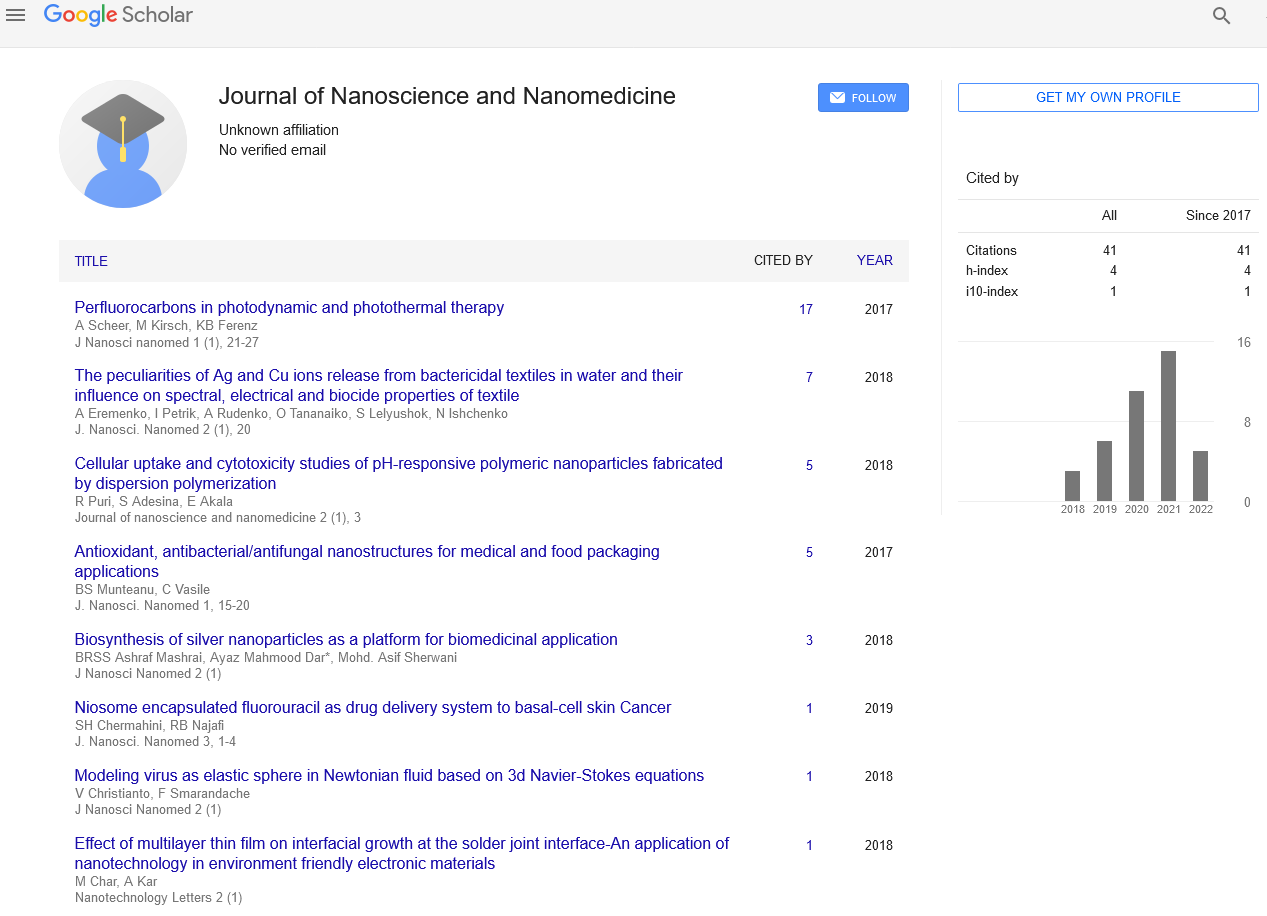
Sign up for email alert when new content gets added: Sign up
Process optimization and characterization of green synthesized silver nanoparticles using leaves extract of Azadirachta indica A. Juss
Annual Congress on Nanomaterials and Nanotechnology
May 13, 2022 | Webinar
Madeeha Ansari and Shakil Ahmed
University of the Punjab, PakistanNanotechnology, one of the most dynamic areas of research and fastest growing market, has increased exponentially now as days because of its application in various fields. The development of ecofriendly products using available resources to acquire maximum production, better yield and stability is a great challenge for nanotechnology. In this study, silver nanoparticles were synthesized via green method using leaves extract of Neem (Azadirachta indica A. Juss.) plant as reducing and capping agent. The effects of various factors responsible in controlling the synthesis process i.e., reaction pH, time, temperature, reagent concentration, volume of plant extract including its preparation method and solvent type were studied. The formation of nanoparticles was confirmed through UV-spectrophotometer and the product showed absorbance peak in range of 420-440 nm. The size of nanoparticles was determined by zeta sizer proved to be 22-30 nm and the functional groups attached to stabilize the nanoparticles were also investigated using FTIR technique. Other techniques such as SEM, EDX and XRD were also employed to study the characteristics of developed nanoparticles. It is concluded from the results that using the plant resources in synthesis of silver nanoparticles is a simple, single step, fast, cost effective and nontoxic approach for synthesis of silver nanoparticles can be applied in agriculture, biomedical and other fields. Recent Publications 1. Madeeha Ansari, Sumera Javad, Azeem Haider, Muhammad Mohsin Alam. Microwave Assisted Extraction of L-fenchone from Foeniculum vulgare Mill. in Hexane. 2021; 2 2. Shakil Ahmed, Rida Ali, Madeeha Ansari, M Nauman Ahmad. Fluoride-induced abnormalities and modulations in growth parameters of Solanum Melongena L. (Brinjal, Bengun, Aubergine, Eggplant). Fluoride. 2020; 53(3): 1-12 3. Iqra Akhtara, Sumera Javada, Madeeha Ansari, Nadia Ghaffar, Amina Tariq. Process optimization for microwave assisted extraction of Foeniculum vulgare Mill using response surface methodology. 2019; 32(2): 1451-1458.
ScientificTracks Abstracts: J Nanosci Nanomed
Abstract :
Nanotechnology, one of the most dynamic areas of research and fastest growing market, has increased exponentially now as days because of its application in various fields. The development of ecofriendly products using available resources to acquire maximum production, better yield and stability is a great challenge for nanotechnology. In this study, silver nanoparticles were synthesized via green method using leaves extract of Neem (Azadirachta indica A. Juss.) plant as reducing and capping agent. The effects of various factors responsible in controlling the synthesis process i.e., reaction pH, time, temperature, reagent concentration, volume of plant extract including its preparation method and solvent type were studied. The formation of nanoparticles was confirmed through UV-spectrophotometer and the product showed absorbance peak in range of 420-440 nm. The size of nanoparticles was determined by zeta sizer proved to be 22-30 nm and the functional groups attached to stabilize the nanoparticles were also investigated using FTIR technique. Other techniques such as SEM, EDX and XRD were also employed to study the characteristics of developed nanoparticles. It is concluded from the results that using the plant resources in synthesis of silver nanoparticles is a simple, single step, fast, cost effective and nontoxic approach for synthesis of silver nanoparticles can be applied in agriculture, biomedical and other fields.
Recent Publications :
1. Madeeha Ansari, Sumera Javad, Azeem Haider, Muhammad Mohsin Alam. Microwave Assisted Extraction of L-fenchone from Foeniculum vulgare Mill. in Hexane. 2021; 2
2. Shakil Ahmed, Rida Ali, Madeeha Ansari, M Nauman Ahmad. Fluoride-induced abnormalities and modulations in growth parameters of Solanum Melongena L. (Brinjal, Bengun, Aubergine, Eggplant). Fluoride. 2020; 53(3): 1-12
3. Iqra Akhtara, Sumera Javada, Madeeha Ansari, Nadia Ghaffar, Amina Tariq. Process optimization for microwave assisted extraction of Foeniculum vulgare Mill using response surface methodology. 2019; 32(2): 1451-1458.
Biography :
Madeeha Ansari is currently working as a Ph.D. research scholar since 2017 at the Institute of Botany, University of the Punjab, Lahore, Pakistan. She has been doing her research work in the field of nanotechnology. Her studies focus on the synthesis of metallic nanoparticles via green method, their characterization and applications in agriculture specifically as nano fungicide. She is interested in improving the nutritional quality of food and the elimination of biotic and abiotic stresses of plants using nanomaterials and to assess the risk to environment. She also has experience in the field of biochemistry while dealing with different extraction methods for production of natural compounds for pharmaceutical industry.




